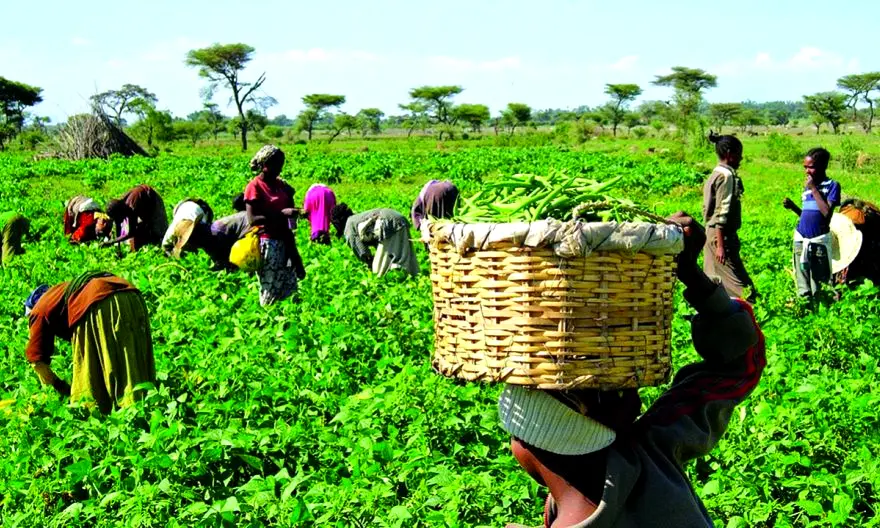
NIRSAL trains over 700, 000 farmers, others in agribusiness
- Agriculture
- No Comment
- 369

The Nigeria Incentive-Based Risk Sharing System for Agricultural Lending (NIRSAL Plc) has trained 700, 000 farmers and other agricultural value chain actors across the country, in its ongoing efforts to improve the capacity and productivity of Nigerian farmers.
“Since its inception, NIRSAL Plc has provided training on Good Agronomic Practices to over 700,000 farmers and trained over 2,600 mid-management and Agric desk officers of commercial banks,” the organization, disclosed in a statement, yesterday.
It said that it has just concluded a series of training sessions under the NIRSAL Strategic Business Support Services (SBSS) which were held in the six geo-political zones.
The agency described the programme as a continuation of efforts targeted at achieving a key component of NIRSAL PLc’s mandate: de-risking of the agricultural value chain in order to encourage more investment in agribusiness by the financial sector,
It addressed NIRSAL’s Technical Assistance pillar which aimed at building the capacity of value chain actors for improved production, handling, processing and marketing of agricultural commodities.
The sessions focused on 10 Commodities of Interest (COI) that have ecological and economic advantages in each region.
The commodities were: Rice, Ginger, Maize, Fresh Fruit & Vegetables (FFV), Cassava, Beans, Aquaculture, Oil Palm, Livestock and Cotton.
According to the organization, the choice of the selected commodities was informed by the NIRSAL Agricultural Commodity Ecological Area (ACEA) map which it developed and obtained validation for from relevant research institutes. NIRSAL Plc believes that ACEA-compliant agricultural investments hold the highest chances for success in terms of production and sale.
In the North-Central, the Benue State SBSS focused on Rice, Ginger and Maize, which are NIRSAL COIs that possess the highest factor productivity in the state.
“Consequently, in the Federal Capital Territory (FCT), the SBSS trained operators in the FFV Value Chain. The rationale for selecting FFV is hinged on the FCT’s urban consumer market. The training sessions took place in Kuje, Nyanya, Mararaba, Apo, Lugbe, the Municipal, Gwagwalada, Dei-Dei, and Abaji.
“In the South-South, the Rivers State SBSS focused on FFVs as well, in addition to Aquaculture. Stakeholders were trained in Rumuola, Wenpey, Aluu, Enekah, Elekahia, Eleme, Mgbuoba, Elelenwo, Igwuruta, Eliozu, and Rumuodomaya.
“In the South-East, focus was on the Rice and Cassava Value Chains. Rice, a commodity produced in every Nigerian state, was also under focus in the Rivers State SBSS exercise.
“Typical of States with large urban areas and high volumes of rainfall, another FFVs state is Lagos. Stakeholders were met in the Kosofe – Ikorodu, Iyana – Iba, and the Lekki – Ajah axes. In Ekiti State, across Ado-Ekiti, Orin Ekiti, Ijero, and Ogbese, Maize, Fish, Rice, and Oil Palm stakeholders, respectively, were met,” NIRSAL said.
Farmers, as well as, input suppliers, processors, transporters, exporters, and traders of agricultural products were trained on modern, business-oriented pre-upstream, upstream, midstream and downstream operations with a view to achieving the micro & macroeconomic effects of farmer-income enhancement and Gross Domestic Product (GDP) increase.
The program identified farmers and value chain actors most in need of training, assessed value chain gaps, designed intervention approaches and implemented the same; the main approach being a four-week long mentorship program comprising in-class and field sessions.
Emma Ujah
Vanguard
Read more: https://www.vanguardngr.com/2021/09/nirsal-trains-over-700-000-farmers-others-in-agribusiness/





